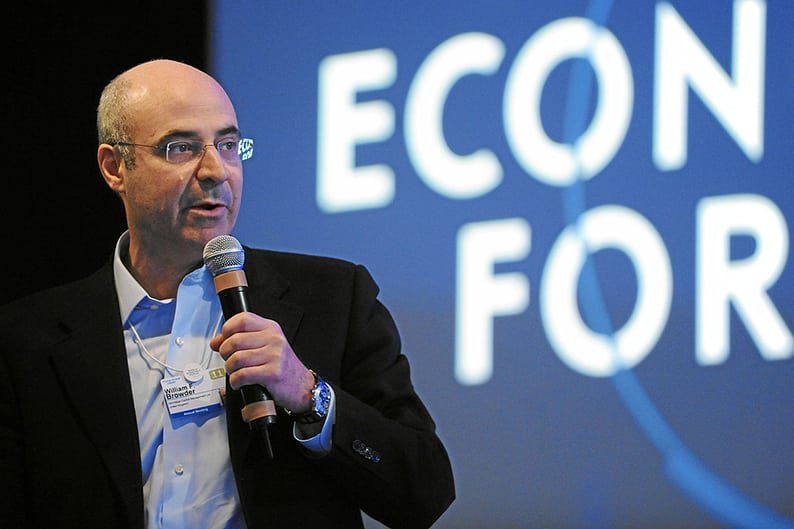
By Stelios Orphanides
The Nicosia district court is expected to decide in early September on the application of Hermitage Capital founder Bill Browder aimed at stopping Cyprus cooperating with Russia against him.
On Thursday, the attorney-general side asked the court to reject Browder’s side request for a temporary order banning Cypriot authorities from cooperating with Russia in a probe against him pending the outcome of a lawsuit filed by the investor-turned-activist, as by doing so, it would violate the principle of separation of powers.
Russia is not requesting Browder’s extradition but instead it is seeking Cyprus’ cooperation into investigating some of his companies in Cyprus, Theano Mavromoustaki, Lawyer of the Republic representing the attorney-general told the court.
Browder resorted to Cypriot justice citing that Russia’s investigation is politically motivated, a version which the Parliamentary Assembly of the Council of Europe already adopted in a January 2014 resolution in which it asked member states not to assist Russia in its activities against Browder.
The investor embarked nine years ago in a campaign for justice for lawyer Sergei Magnitsky who died in a Russian prison after exposing a $230m (€196m) tax fraud. The police officers accused by Magnitsky of perpetrating it, arrested him and had him tortured and die deprived of access to medical treatment. In 2012, the US Congress passed the Magnitsky Act to target individuals and companies suspected of human rights violations with sanctions.
This angered Russia’s President Vladimir Putin and ordered Russian authorities to investigate Hermitage Capital, until the mid-2000s, the largest foreign investor in Russia and seek to have Browder arrested. Interpol repeatedly ignore Russian arrest warrants against Browder. On July 16, Putin asked US President Donald Trump to allow Russian authorities to question Browder whom he accused of donating $400m to former US Secretary of State Hillary Clinton, the Democratic Party’s candidate in 2016 presidential elections. After being forced to leave Russia in 2005, Browder is a resident of the UK and after relinquishing his US citizenship, a British citizen since 1998.
On July 16, Browder’s lawyer Christos Pourgourides said in a telephone interview that he told the court that Cyprus’ government consented to assisting Russia against Browder to please Moscow expecting political benefits in return, even though they had to reject the Russian request because they knew or should at least know that it violated Browder’s rights.
In October, days before President Nicos Anastasiades’ visit to Moscow, the decision of the Cypriot authorities to freeze cooperation with Russia in the investigation against Browder sparked an angry response from Russia. Russian ambassador to Nicosia Stanislav Osadchiy said that the decision had hurt bilateral ties.
Cyprus, whose economy is largely reliant on Russian business and had to step up its efforts against money laundering and terrorism financing after resorting to a bailout five years ago, is facing increasing US pressure to comply with expanding US sanctions on Russians.
The post Court to decide early September in Browder’s case appeared first on Cyprus Mail.